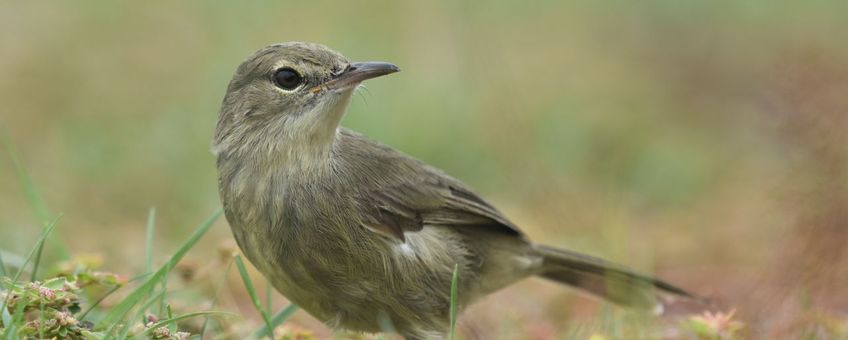
‘Heroic’ songbirds rescue each other
University of Groningen
Sticky seeds
Birds on the island of Cousin in the Indian Ocean sometimes become entangled in the sticky seeds of the pisonia tree, also known as the ‘bird-catcher tree’. The seeds become entangled in the feathers of the birds’ wings, rendering them unable to fly and forage for food. This is often fatal.
Martijn Hammers and Lyanne Brouwer discovered that Seychelles warblers rescue family members by helping them to remove the sticky seeds. They do this by pecking and tugging at the seeds with their beaks, with no regard for their own safety.
Rescue behaviour
Follow-up observations of the birds that had been rescued in this way after seeds had become attached to their wing feathers revealed that all the seeds had been removed. Martijn Hammers: "This rescue behaviour is a unique example of social behaviour. The rescuer must not only see that a group member is in danger, but must also recognize the cause of that danger and take the right course of action to neutralize it. In addition, the rescuer must try to avoid the same danger while carrying out its rescue operation. The fact that animals rescue animals of the same species from dangerous situations could be an indication of empathy, but more research is needed to exclude other explanations."
Family success
When a Seychelles warbler rescues one of its own, this not only benefits the victim, but also the individual carrying out the rescue operation. Saving a group member increases the chances of the bird’s family group remaining intact and its ultimate chances of success. Hammers: "We expect to find this type of behaviour in other wild animals, particularly animals that live in family groups. The birds could also behave in this way in the hope that the favour will be returned if they find themselves in the same situation."
Spreading seeds
The advantage of sticky seeds is that once they stick to the birds’ feathers, they can be spread to other islands. Furthermore, if a bird flies to another island and dies, the seeds have a greater chance of germinating because the dead bird serves as a source of nourishment. Although it is largely seabirds that fall foul of pisonia tree seeds, the seeds can also get stuck in the feathers of endangered songbirds, such as the Seychelles warbler.
These findings have been published in the online edition of the scientific journal Behaviour.
Text: Martijn Hammers, University of Groningen and Lyanne Brouwer, Australian National University and Netherlands Institute for Ecology (NIOO)
Photos: Martijn Hammers

